The material taught at flight attendant schools covers various aspects necessary to become a successful flight attendant. Below are some general materials typically included in a flight attendant school curriculum:
1. Aviation Safety:
- Aviation Safety Procedures: About the procedure for using safety equipment, evacuation procedures, and handling emergency situations on board aircraft.
- Understanding of Aircraft Systems: Understand the function and operation of aircraft systems, including engine, electricity system, and hydraulic system.
2. Customer service:
- Communication Skills: Training in communicating well with passengers and other crew members, including the use of appropriate body language and voice intonation.
- Conflict Handling: Strategies for handling conflict situations with passengers and creating a positive environment on board.
- Service Skills: Training in providing friendly customer service, efficient, and professional.
3. Manners in Aviation:
- Professional Ethics: Understand the ethical standards and professional behavior required in the aviation industry.
- Manners in the Air: Training on proper etiquette while on a plane, including how to interact with passengers and other crew members.
4. Health and Wellness:
- Physical and Mental Health: Understand the importance of maintaining physical and mental health in carrying out flight attendant duties.
- Stress Management: Strategies for managing stress and pressure that may occur during flight assignments.
5. Operational and Administrative Procedures:
- Airline Operational Procedures: Understand the operational procedures set by the airline, including boarding procedures, announcement procedure, and food service procedures.
- Cabin Administration: Training in cabin administration, including incident reporting, filling out reports, and other documentation procedures.
6. Foreign language:
- Foreign language (optional): Training in foreign languages commonly used in aviation to facilitate communication with passengers from various countries.
7. Flight Simulation:
- Simulation Training: Practical experience in simulated flight situations to prepare prospective flight attendants for a variety of scenarios that may occur on an airplane.
8. Other Skills:
- First Aid: Training in providing first aid in emergency situations.
- Self care: Information about personal care required while on an airplane, including make-up and clothing.
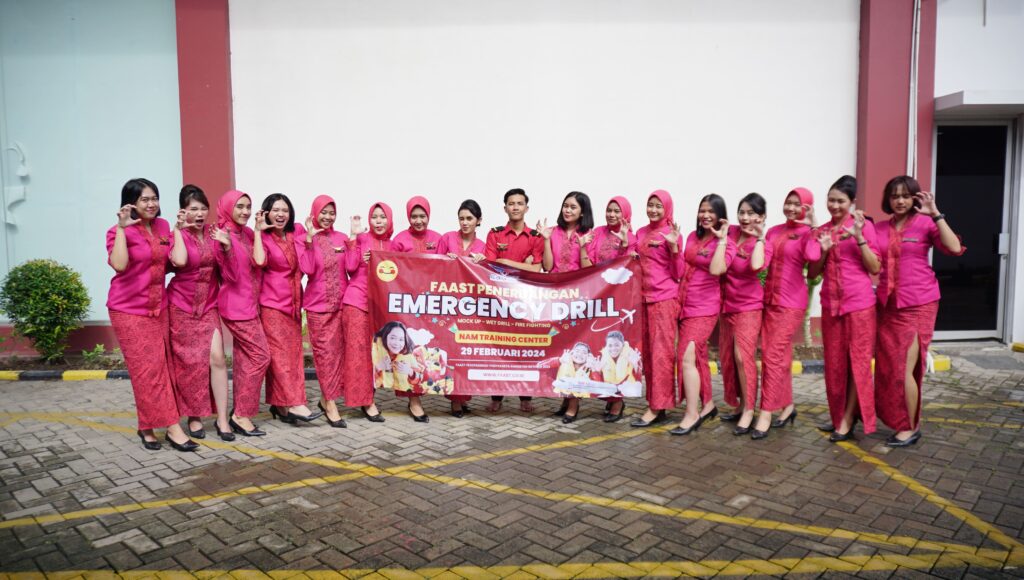
The material taught at flight attendant schools is designed to give students an in-depth understanding of the duties and responsibilities of flight attendants, and prepare them to face challenges in the aviation industry. With a combination of practical and theoretical training, Flight attendant school aims to produce quality flight attendants who are ready to work for various airlines.
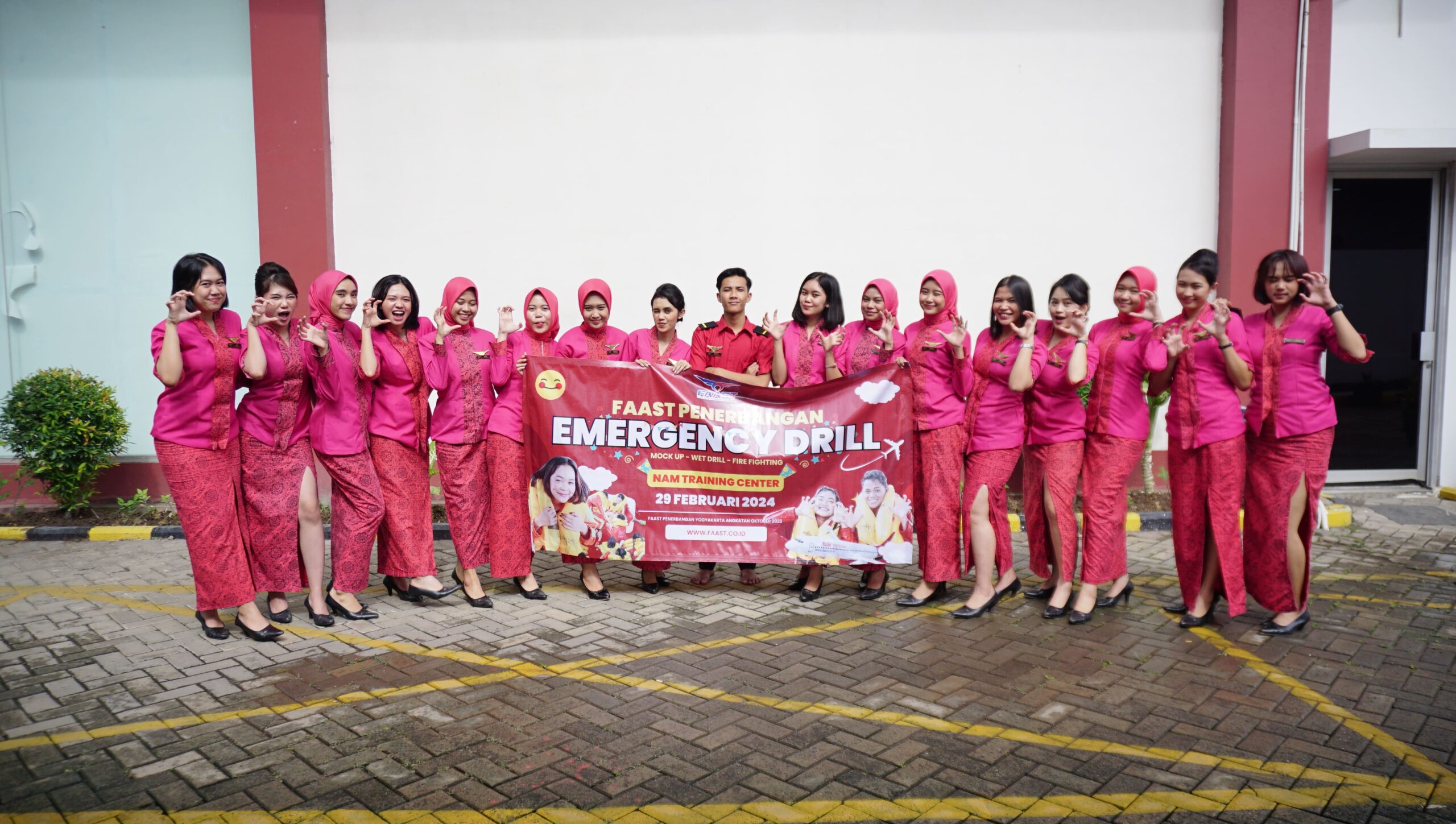
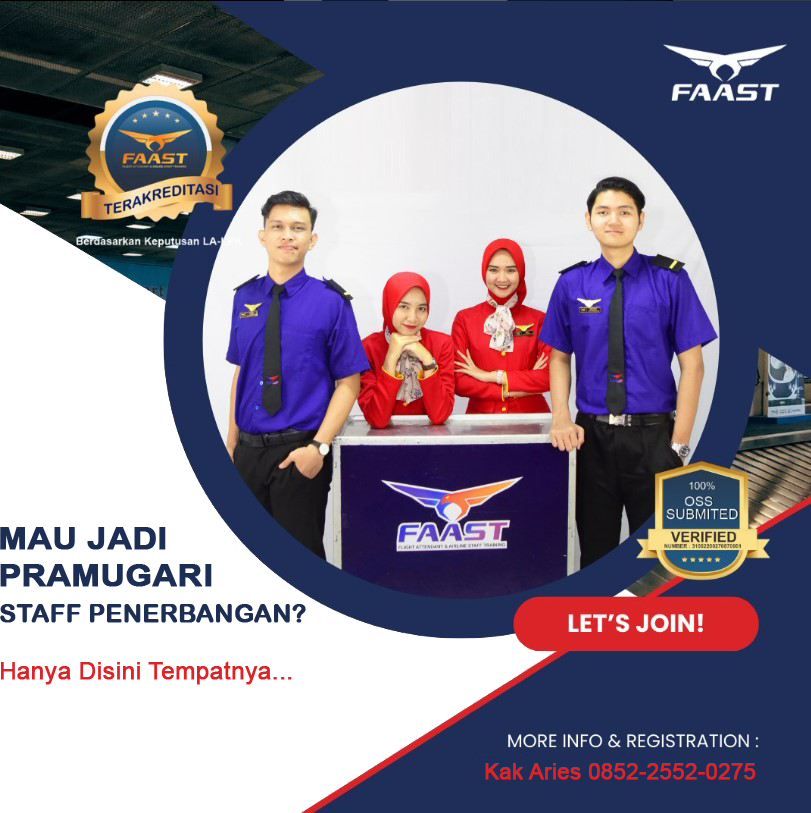
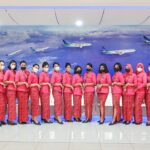

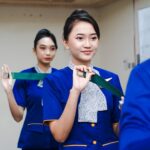
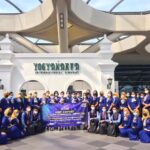










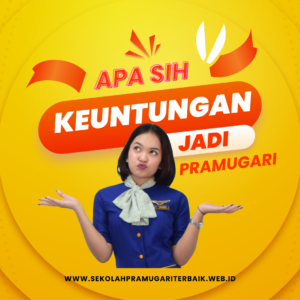







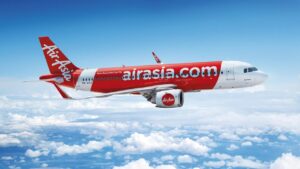
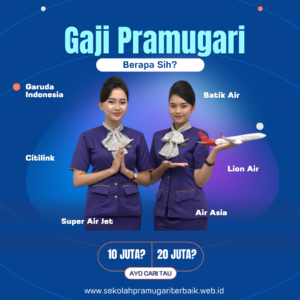
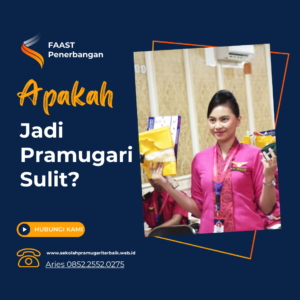


Leave a Reply